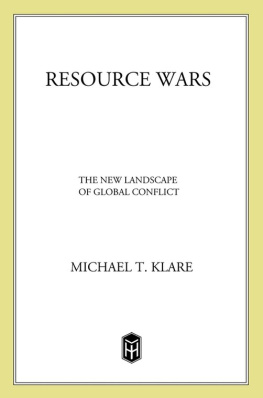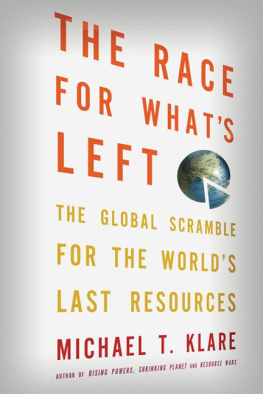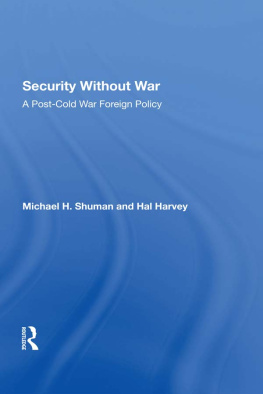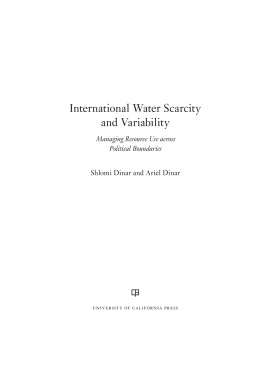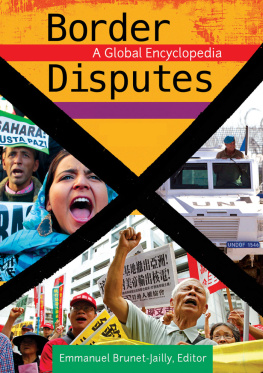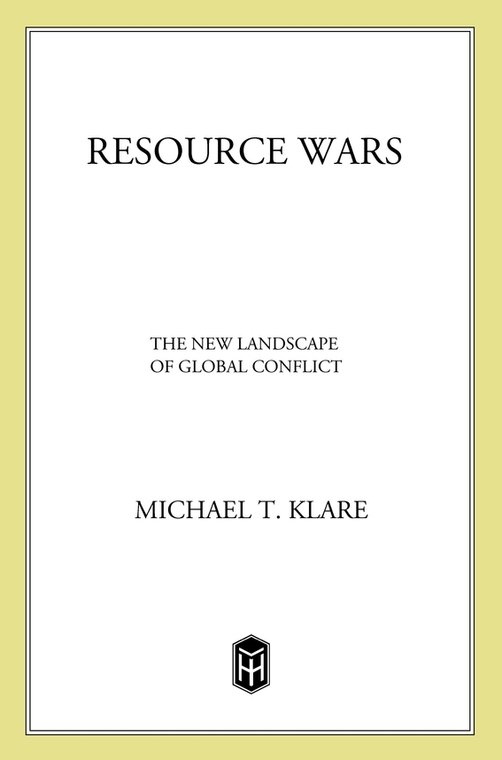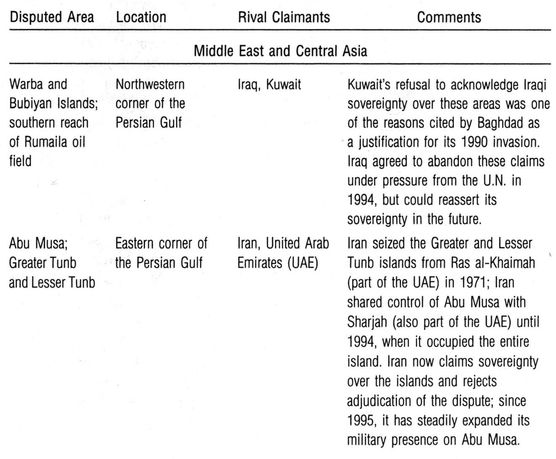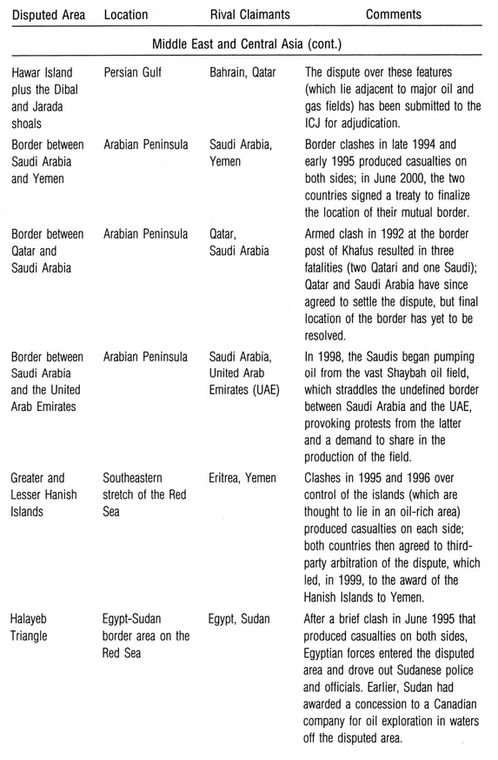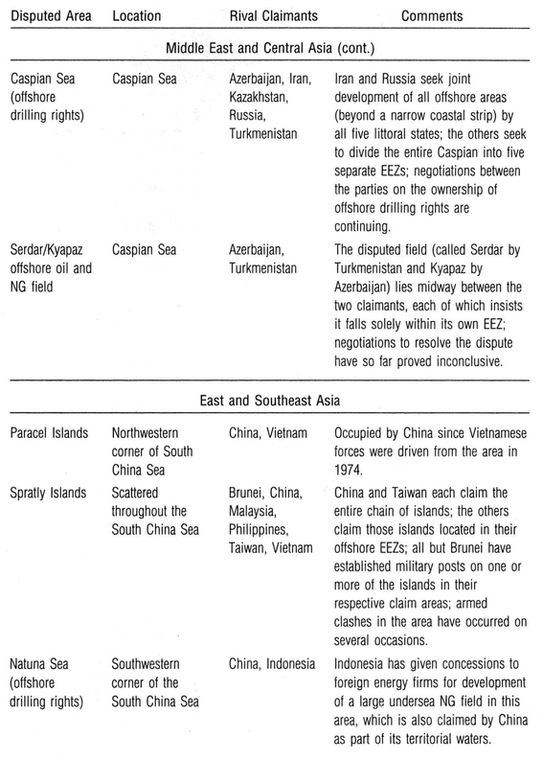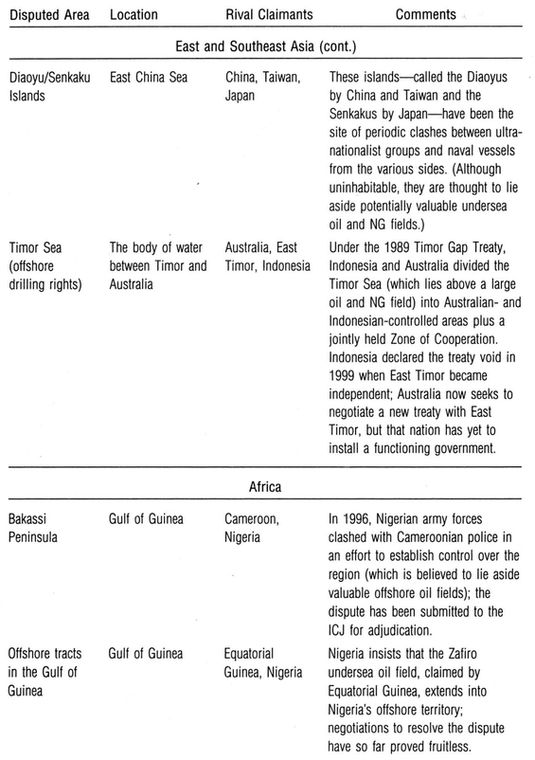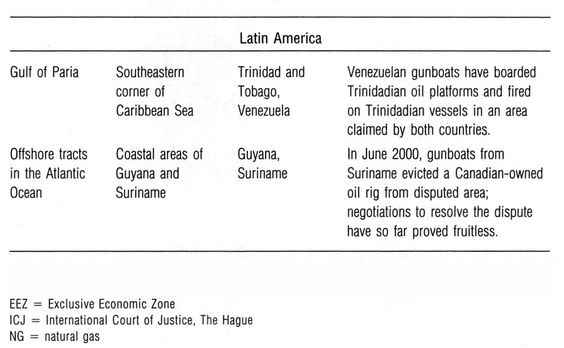Michael T. Klare - Resource Wars: The New Landscape of Global Conflict
Here you can read online Michael T. Klare - Resource Wars: The New Landscape of Global Conflict full text of the book (entire story) in english for free. Download pdf and epub, get meaning, cover and reviews about this ebook. year: 2002, publisher: Holt Paperbacks, genre: Politics. Description of the work, (preface) as well as reviews are available. Best literature library LitArk.com created for fans of good reading and offers a wide selection of genres:
Romance novel
Science fiction
Adventure
Detective
Science
History
Home and family
Prose
Art
Politics
Computer
Non-fiction
Religion
Business
Children
Humor
Choose a favorite category and find really read worthwhile books. Enjoy immersion in the world of imagination, feel the emotions of the characters or learn something new for yourself, make an fascinating discovery.
- Book:Resource Wars: The New Landscape of Global Conflict
- Author:
- Publisher:Holt Paperbacks
- Genre:
- Year:2002
- Rating:4 / 5
- Favourites:Add to favourites
- Your mark:
Resource Wars: The New Landscape of Global Conflict: summary, description and annotation
We offer to read an annotation, description, summary or preface (depends on what the author of the book "Resource Wars: The New Landscape of Global Conflict" wrote himself). If you haven't found the necessary information about the book — write in the comments, we will try to find it.
From the oilfields of Saudi Arabia to the Nile delta, from the shipping lanes of the South China Sea to the pipelines of Central Asia, Resource Wars looks at the growing impact of resource scarcity on the military policies of nations.
International security expert Michael T. Klare argues that in the early decades of the new millennium, wars will be fought not over ideology but over access to dwindling supplies of precious natural commodities. The political divisions of the Cold War, Klare asserts, have given way to a global scramble for oil, natural gas, minerals, and water. And as armies throughout the world define resource security as a primary objective, widespread instability is bound to follow, especially in those areas where competition for essential materials overlaps with long-standing territorial and religious disputes. In this clarifying view, the recent explosive conflict between the United States and Islamic extremism stands revealed as the predictable consequence of consumer nations seeking to protect the vital resources they depend on.
A much-needed assessment of a changed world, Resource Wars is a compelling look at warfare in an era of rampant globalization and intense economic competition.
Michael T. Klare: author's other books
Who wrote Resource Wars: The New Landscape of Global Conflict? Find out the surname, the name of the author of the book and a list of all author's works by series.

